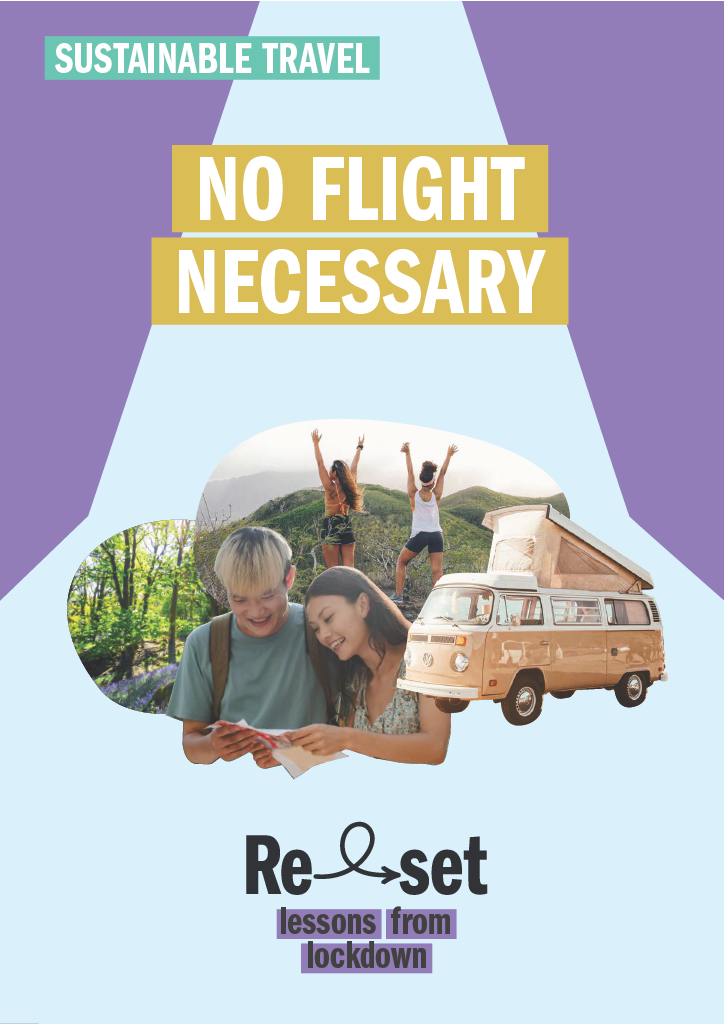During the lockdowns in particular, as people were restricted to places they could reach by bike or on foot, many were astonished to discover local woods, walking paths, town trails, parks and ancient monuments they would otherwise never have found. This helped build communities and bring people together regularly, as well as reduced overconsumption, as walk through a local bluebell wood or across a nearby park
provides healthy activity, rest from stress and requires no gift shop, or shopping at all.
I was really, really heartened by the joy that so many people found from connecting with nature on their doorsteps during the lockdowns in particular. I truly hope that we can continue this as part of a more sustainable future, both for our own health and wellbeing and for the reduced carbon footprint that will contribute to tackling climate change.
– Sandra King, Beaver Trust
The pandemic not only stopped us travelling; it also resulted in many of us focusing on closer to home, becoming more engaged with our local communities, cycling and walking to destinations in our own neighbourhoods and noticing the natural world in our immediate vicinity. As the world opens up again and foreign destinations look more enticing, let’s hope that our newfound appreciation of our own areas remains strong, helping us to build resilience together.

This story is part of the Reset series – a collection of short downloadable stories that look in more detail at over consumption and unnecessary travel. They consider some of the key messages and solutions that have become apparent during the pandemic that could help us make the rapid transition to a more sustainable future.
This guide has been made possible by the support of ClimateWorks Foundation.
 As flying becomes a no-go area for growing numbers of carbon conscious travellers, the default holiday is changing as a result of our experience during the pandemic. This has enabled people to see their home location from a new – and sometimes more positive – perspective. From Instagram trips around Hong Kong to walking tours of the Cincinatti’s slave history, imaginative ways of having fun in your own area have sprung up all over.
As flying becomes a no-go area for growing numbers of carbon conscious travellers, the default holiday is changing as a result of our experience during the pandemic. This has enabled people to see their home location from a new – and sometimes more positive – perspective. From Instagram trips around Hong Kong to walking tours of the Cincinatti’s slave history, imaginative ways of having fun in your own area have sprung up all over.